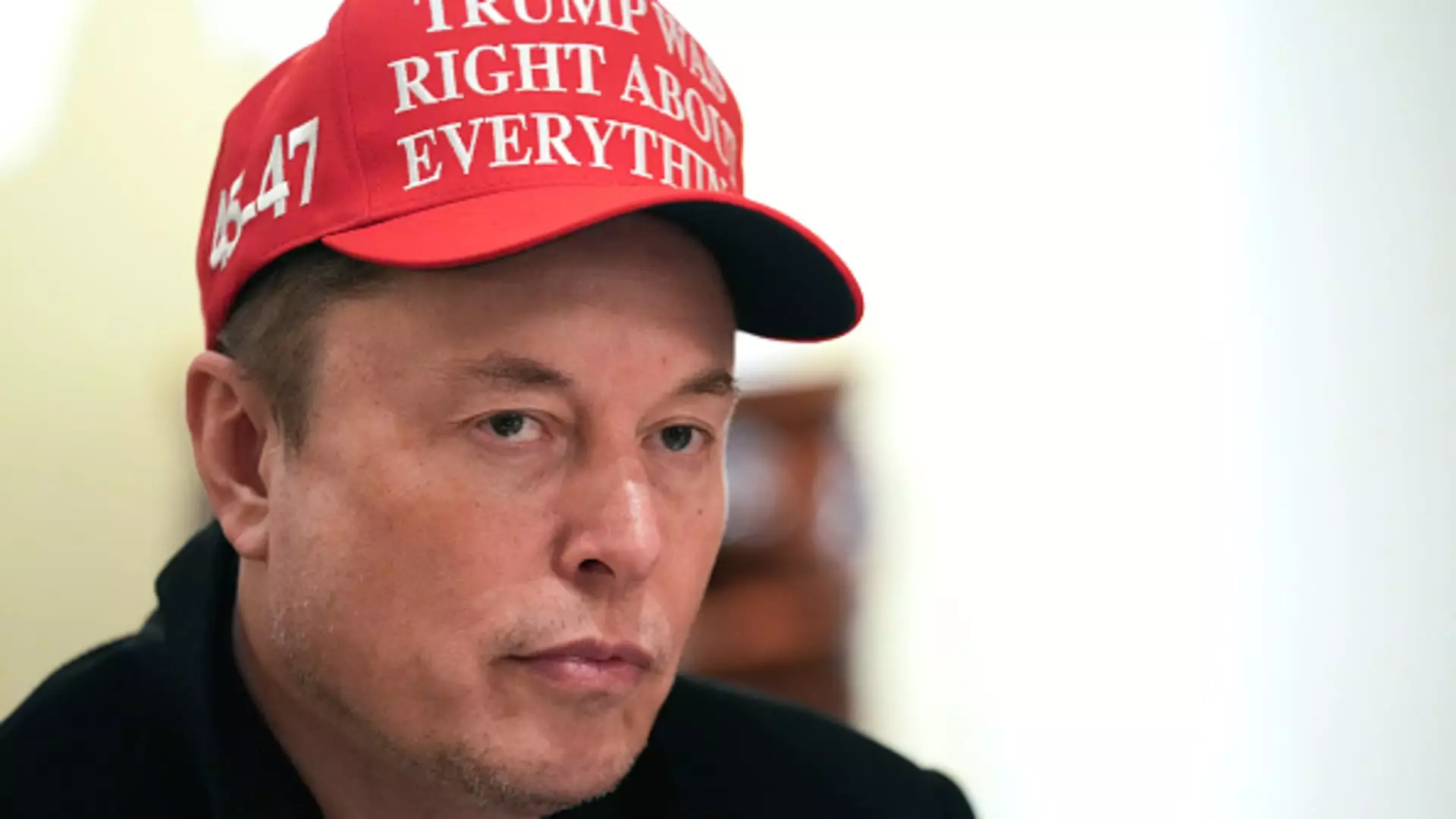Tesla Inc., a beacon of innovation in the electric vehicle market, finds itself embroiled in a storm of challenges that has significantly impacted its stock performance. On Monday, shares plummeted by nearly 6%, closing at $227.50 and leaving investor sentiment in a state of unease merely a day before the highly anticipated first-quarter earnings report. With the stock now down a staggering 44% for the year, following its worst quarter since 2022, the questions surrounding Tesla’s future are mounting. Analysts are particularly worried about “ongoing brand erosion,” which they link to the high-profile distractions of CEO Elon Musk and a competitive landscape that appears to be tightening.
This decline marks a concerning trend, as the stock has experienced at least 12 days of a more than 5% drop in just the first few months of the year. The notable scrutiny intensified with concerns surrounding Musk’s multifaceted engagements beyond Tesla, primarily his controversial involvement in political initiatives. Investors are left to wonder whether corporate stability can be maintained under such tumultuous leadership.
The Shadow of Leadership Distractions
Musk’s pursuits often overshadow Tesla’s operational goals. The focus on his political efforts—particularly his attempts to aid in returning former President Trump to power—has drawn ire and distraction away from the brand’s core mission of revolutionizing transportation through electric innovation. One poignant question posed by an investor in Tesla’s online inquiry forum starkly highlights the anxiety proliferating through the investor community: “What steps has the board of directors taken to mitigate the brand damage caused by Elon’s political activities?”
Indeed, as Musk facilitates significant cuts within the federal workforce, the repercussions are reflected in the stock price and consumer sentiment. The backlash against Musk’s controversial public persona and decisions has led to protests and boycotts, damaging the perceived integrity of the Tesla brand, particularly in key markets such as Europe and North America.
Delivery Dilemmas and Revenue Reports
Tesla’s recently reported delivery numbers indicate the company may be grappling with more than just brand erosion. Analysts revealed that the 336,681 vehicles delivered in the first quarter represent a 13% year-over-year decline, sparking fears of stagnation at a time when electric vehicles are expected to soar in popularity. Forecasts suggest a slight revenue dip to approximately $21.24 billion, reinforcing the notion that Tesla’s performance may be faltering in the face of increasing competition and pressures.
Investors are particularly curious about any forthcoming responses regarding the implications of Trump’s tariffs and how they might affect Tesla’s profit margins. Oppenheimer analysts articulated concerns over both domestic and international market demand, notably suggesting that competition in China could siphon sales away from Tesla. Should this trend continue, notable pricing pressures might emerge, as they could be forced to export more of their manufacturing output to maintain sales momentum.
Consumer Sentiments and Market Reactions
Adding more complexity to Tesla’s narrative is a research finding by Caliber, revealing an alarming decline in consumer consideration for the brand. Only 27% of surveyed individuals expressed interest in purchasing a Tesla vehicle, a stark drop from 46% just a year prior. This shift reflects not just internal company issues but broader consumer sentiment, which seems increasingly wary of associating with a brand viewed through the lens of political controversy.
The impending earnings call creates a poignant opportunity for Musk to pivot this narrative. Long-term bullish analyst Dan Ives stated the necessity for “a turnaround vision” that may revive consumer interest and confidence. He apprehensively noted the brand’s troubling evolution into a “political symbol,” which could steer potential buyers away, ultimately leading to what he estimates could be a 15% to 20% demand destruction rate due to the reputational fallout from Musk’s political affiliations.
Analyst Forecasts: Navigating a Confusing Landscape
With market sentiment treading in turbulent waters, financial experts like Barclays have taken a more cautious stance on Tesla, downgrading their stock evaluation and reducing the price target significantly. Their observations highlight a “confusing set-up” steeped in weak fundamentals. A positive shift may occur if Musk can hone in on his core responsibilities as an automaker and unveil promising projections concerning Tesla’s Full Self-Driving technology initiatives during the earnings call.
In facing this constellation of challenges, Tesla stands at a crossroads, needing to reclaim its identity as an industry innovator while navigating the stormy seas of public perception and market volatility. The intricate interplay of leadership, market sentiment, and operational efficacy will play a significant role in determining whether Tesla can turn the tide or face continued headwinds in the competitive electric vehicle landscape.


Leave a Reply